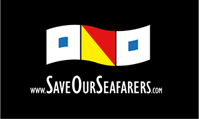Source: WatchKeeper
Extract from Maritime Press Clippings – 10.01.2010
Regulation keeps ships and those aboard them safe and secure and the sea clean. But who makes the regulation and is it always “fit for purpose”? Just as one often hears complaints that laws are made by politicians and lawyers without much practical knowledge of their likely effect, how often are maritime regulations impractical because there has been insufficient input into them?
The ultimate test of any regulation is how much it takes notice of the human element – the people who, at the “coal face”, will have the job of implementing what the regulation demands. And indeed, how much input did those people who will be the ultimate “users” of the regulation manage to insert into what was eventually decided by the lawmakers?
This important issue forms the focus of the latest Nautical Institute Alert! Bulletin, which suggests that regulators need to be super-sensitive to the human element and the effect their rules will have on the practical operation of ships.
There are some 160 flag states represented at the International Maritime Organization, but exactly how many of the distinguished delegates reflect the views of practical shipping people, mariners and the like, as they devise regulation and see into the various conventions?
Some member nations are notably effective in this respect, with mariners and operators on their delegations. But others may receive practical input only indirectly, and have little relevant expertise to hand.
It is one reason why the attendance of BIMCO at the IMO, International Labour Organisation and other fora is so important. BIMCO brings with its observers a great deal of practical, up to date, operating experience, and is able to transmit this through its interventions. It is helping to keep regulators on the right path.
Three years ago, as there seemed some concern about whether human element matters were being properly considered in regulation, there was an important development at IMO, when the organisation introduced its “Checklist for considering Human Element issues by IMO bodies”. It is a useful and significant breakthrough, although it is only a recommendation, and the test must surely be whether it is making any difference in the various IMO committees, sub-committees and working parties.
Alert! suggests that it should be “the benchmark for addressing the human element in the development and implementation of all international, regional and national maritime conventions and instruments, and for the development of company rules and regulations”. It is difficult, surely, to argue with this assertion.
But if those making regulations are to make the right decisions, they themselves need to have the right knowledge and skills, or at least easy access to somebody with the practical experience. Several years ago at one of the IMO Navigation sub-committee meetings, important work was being done on electronic charts. On this particular occasion, the delegates’ deliberations were greatly assisted by a group of practising shipmasters, who were on hand with various displays in the delegate’s lounge, and were able to explain their views as practising navigators. That was direct input from the human element, and very useful it was too.
It may not be possible to have such expertise readily available on all occasions, but it is important that an effort is made to reconcile upcoming legislation with the human element checklist. The result will be so much better!

 Graph showing increase in piratical attacks over the past four years
Graph showing increase in piratical attacks over the past four years 

